When analyzing Canada’s past economic growth, it’s clear that the economy overshadows the environment time after time. While Canada prides itself on having a clean environment, the notion of coupling environmental preservation with economic growth is still in its infancy.
Canada’s economy has been described as having transformed from a natural resource-based economy to a service economy, and now to a “knowledge-based economy”. While this is true of urban centers, primary industries operating within rural Canada are still significant economic drivers.
With abundant resources in oil, minerals, ore, timber and fresh water, it’s no surprise that the initial development of Canada’s economy was closely tied to the exploration of natural resources, particularly oil.
With environmental damage reaching critical levels, Canadians are increasingly looking for ways to balance growth and the preservation of the environment.
Pro-fossil coal and fossil fuel advocates have long decried the move to cap Alberta oil sand emissions at 100 megatonnes of emissions annually, as being anti-business and bad for the economy. While outrage as a result of job insecurity and economic anxiety is to be expected, the claims that embracing renewable energy is damaging for the economy are heavily misguided.
Canada’s economic strategy requires significant modification if it is to fulfill the promise of prioritizing both environmental preservation and economic growth. The necessary adaptations, such as bolstering investments to stimulate the renewable energy market, have unfolded at a dismal rate.
Prime Minister Justin Trudeau has consistently downplayed the scope of the necessary changes as being a mere “transition” phase, where renewable energy will gradually become the primary energy source.
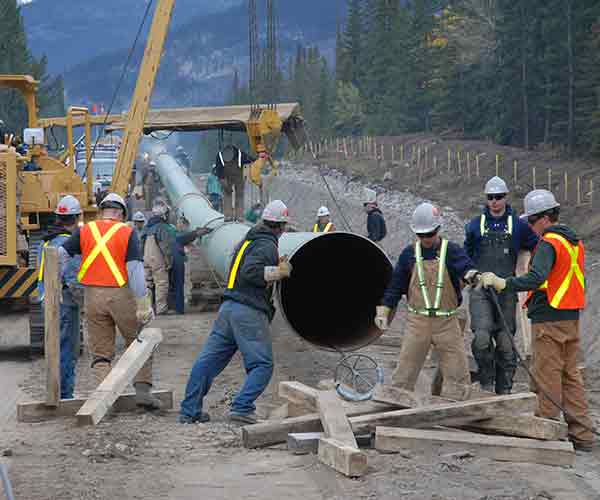
The Kinder Morgan Trans Mountain Pipeline System, or simply the Trans Mountain Pipeline, is a pipeline that carries crude and refined oil from Alberta to the west coast of British Columbia, Canada.
In reality, to comply with a threat as significant and time-sensitive as climate change, Canada requires rapid and massive structural economic change.
Without bold action, Canada cannot fulfill its promise. Canadian’s have long survived broken political promises, but surviving a broken environment is likely to be devastating in all meaning of life. While the public is typically hesitant to support policy changes that are viewed as potential causes of economic turmoil, renewable energy is a safe bet.
The issue surrounding renewable energy lies with the communication of policy—and whether the public has faith in those backing it. The plummeting price of renewable energy, for one, is a good indicator of its increasing viability.
Current projections expect renewables to be equal to or cheaper than fossil fuels by 2020, significantly earlier than previous projections expected. Not only will this equate to large job growth and a healthier environment, but it will also translate into lower electricity bills for consumers.

Green jobs are changing the energy market, and green technologies are reshaping how the energy sector does business, recruitment, and training (Stock Image)
While this is irrefutably good news in the fight against climate change, it may actually be good news for Canada’s energy sector, and the overall economy as well.
Canada’s economy posted a 0.4 percent expansion in the last quarter of 2018, the weakest quarterly growth since mid-2016. This slow down was also accompanied by a reduction in household consumption spending.
Currently, Canada’s economy looks to be slowing down. The good news is that renewable energy has the potential to resuscitate significant growth. A quick comparison between jobs created as a result of fossil fuel investments and renewable energy investments paint a clear picture. Renewable energy has more to offer to the Canadian economy.
Per one million dollars invested in fossil fuel infrastructure, an estimated 2.65 full-time jobs are created. This is far short of the 7.49 full-time jobs created from an investment of one million dollars in renewable energy. With an employment ratio of nearly 3-1, renewable energy puts up a strong economic argument for embracing the transition away from fossil fuels.
Simply put: the notion that society must choose between environmental preservation and economic prosperity is a false dichotomy. Thanks to the world’s expansive knowledge in the field of sustainability, co-existence between the two have never been easier to achieve.
Changing the narrative
With renewable energy market proving to be an expansive and tantalizing job market, calls for a rapid response to climate change should take advantage. Canada not only serves to gain a host of social and environmental benefits, such as a healthier aggregate population and eco-systems but also economic benefits by providing new investment, employment and manufacturing opportunities.
While there is strong public support for climate action and other environmental initiatives, the economy is still the dominant factor in the minds of voters. By breaking down the false dichotomy that is the environment vs the economy, economic growth can be used to strengthen the argument for renewable energy.
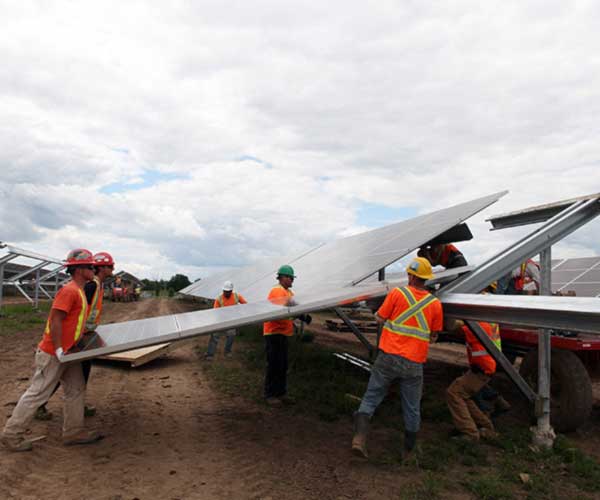
Workers install a solar panel at the SunEdison Newboro 1 Solar Project (Dave Chan for The Globe and Mail)
The emerging renewable energy industry has the potential to replicate the kind of economic growth most commonly experienced by the development of large-scale infrastructure projects, such as housing or energy plants. When coupled with a growing job market, renewable energy is setting the stage to provide a myriad of benefits for whichever nation harnesses them soonest.
The jobs associated with renewable energy are also long-term jobs that don’t rely on the volume of a harvesting resource, ensuring greater stability. Wind and solar energy, for example, require technicians for both the installation and maintenance of the renewable infrastructure. This means that those in the field of renewable energy maintenance are provided safe, steady, well-paying jobs.
One constraining factor of renewable energy is the upfront capital cost. The average cost in 2017 to install solar systems ranged from a little over $2,000 per kilowatt (kilowatts are a measure of power capacity) for large-scale systems to almost $3,700 for residential systems. A new natural gas plant might have cost around $1,000/kW. Wind comes in around $1,200 to $1,700/kw.
This has slowed progress, as financial institutions view high upfront costs as “risky,” and subsequently lend money at higher interest rates, making it “more difficult to justify investments”. High upfront costs have also contributed to the rejection of renewable energy projects on the basis of “fiscal responsibility.”
The irony, however, is that renewable energy projects aren’t fiscally irresponsible; rather the continued development of fossil fuel infrastructure is. Not only will climate change cause irreversible environmental damage, but it will also cause significant economic damage to some of Canada’s most volatile industries, like the Maritime fisheries.
Northern Canadian communities are already feeling the economic effects of climate change. As the permafrost that supports the foundations of buildings, roads and other infrastructure projects melts, they become destabilized. The destruction of infrastructure, smaller agricultural yields, damaged fisheries and increased severity of natural disasters makes climate change an economic crisis waiting to happen.
The effects and subsequent costs of climate change aren’t only a concern for the future.
Throughout 2018, Montreal experienced 70 heat-related deaths, British Columbia battled massive wildfires that degraded the air quality to the worst in the world, and two brief thunderstorms caused widespread flooding in downtown Toronto. The Disaster Financial Assistance Arrangement program (DFAA), which offers financial assistance to provinces and territories after natural disasters, averaged an annual payout of 12 million between 1970-1994, 163 million between 1995-2004 and finally an average of 373 million between 2005-2015.
The dramatic growth in costs of environmental, social and economic damage as a result of climate change presents a strong narrative for Canada to aggressively pursue the low carbon economy. While environmental issues are prone to apathy on behalf of the population, primarily focussing communication efforts on the economic costs associated with climate inaction may help win over individuals still on the fence about embracing renewable energy.




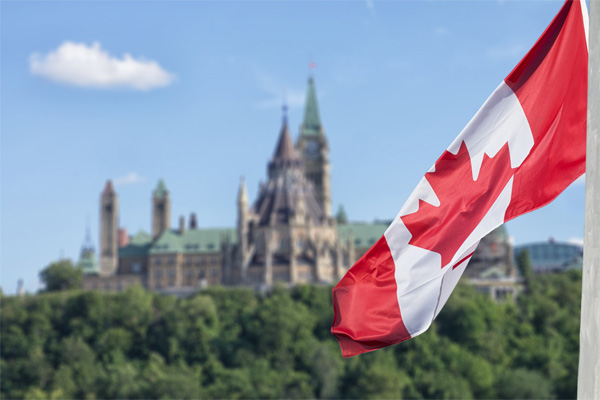

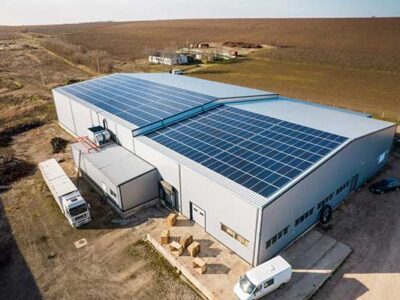

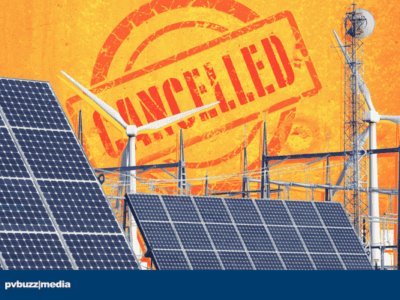

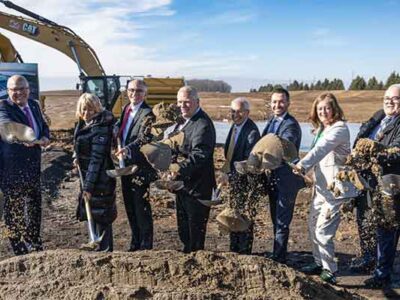


Comments